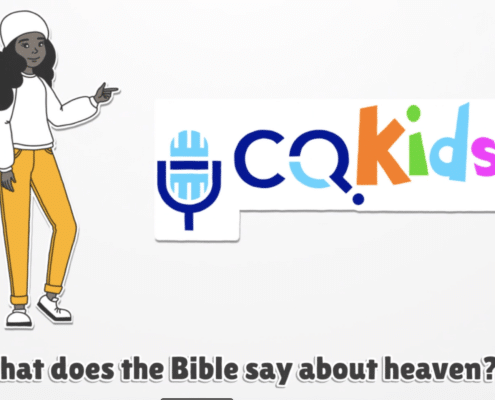Ep.1318: What Did Jesus Really Think of the Pharisees? (Part I)
How Jesus exposed the deep hypocrisy of the scribes and Pharisees
If you do not have a password, please subscribe to our FREE Premium Content for the Full Edition version of CQ Rewind. The welcome message will contain your password, and a reminder will be sent each week when the CQ Rewind is available online for you to read, print, or download.
CHAPTERS
Theme Scripture: Matthew 23:27
Jesus was a wise, loving and compassionate man. His whole reason for becoming a man was to give his life as a ransom for every single human being who ever lived, and you can’t be more selfless and giving than that. Yet, with all of his compassion, Jesus was also one to not mince words when a hard message was needed. This becomes extremely evident when we examine the seven "woes" he proclaimed to the Pharisees in Matthew chapter 23. Of all the words we have recorded from Jesus’ earthly ministry, these are the most blunt and direct. So, what was Jesus really saying to the scribes and Pharisees? Was he showing a fundamental dislike for them? Was he exposing their true characters so everyone could see? Or was he simply expressing his dislike for who they were and what they stood for?
Seven Woes
Jesus knew his earthly mission to present himself as the Messiah and as the ransom price for Adam’s sin, was ending. During those last few weeks of his ministry, there were many incredibly significant events recorded in Scripture for us. Not the least of these was his proclaiming of seven woes to the scribes and Pharisees. These spiritual leaders of the Jewish nation were (with individual exceptions) at odds with Jesus from the moment he began to preach. After 3½ years of being challenged by them, answering their questions, performing miracles in spite of them, asking them questions they could not answer and teaching all of the people to their dismay, Jesus was now out of time.
A Last Attempt
These scribes and Pharisees would not accept him, his message, or the proof of his being their Messiah. On the contrary, they had begun plotting to kill him. Jesus loved them as he loved all of God’s chosen nation. In proclaiming these woes, he was giving them a last opportunity to see the error of their ways. These hard and truth-filled criticisms were done publicly. Why? Because their hypocrisy and self-elevating behavior was paraded about before the people on a regular basis. Both the people and these leaders had a right to know how they continuously and obsessively misrepresented God’s Law for the nation.
Check out our January 29, 2024 podcast, “What Did Jesus Really Think of the Pharisees? (Part I)” for more. We set the context of Jesus’ words and then carefully examine the bluntness of what he said. First, we dig into what he meant by saying, “Woe to you!” with each and every reality he presented. We follow Jesus’ reasoning as he called them “hypocrites” and “blind leaders.” We observe as he backed these bold labels with specific and undeniable examples. This is a big topic, and Part I treats the first three of these seven woes. With each and every example, we pause and consider how to identify and avoid these very tendencies within each of us. Don’t miss this opportunity to see Jesus’ love, wisdom and proclaiming of truth in action!




















